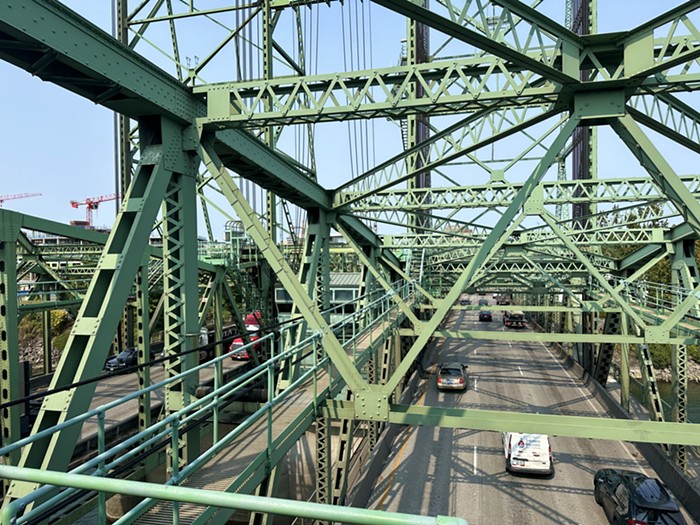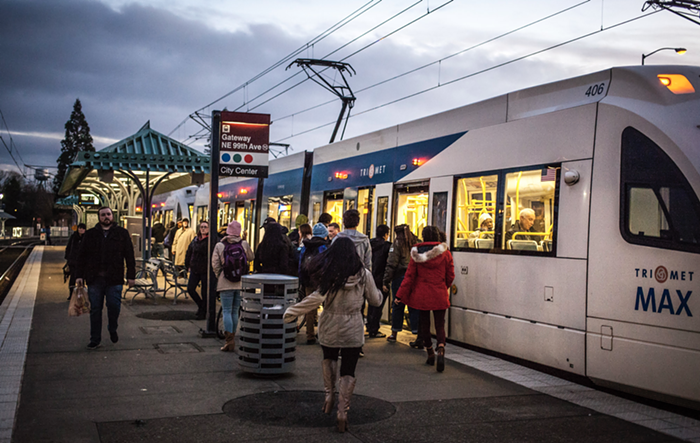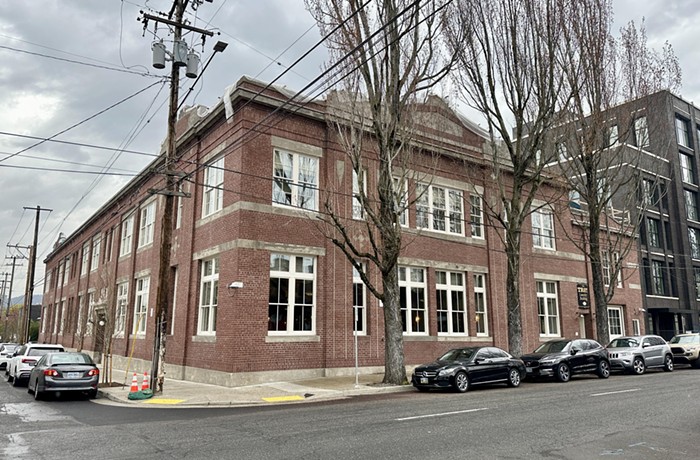While TriMet has raised its fare to a flat rate of $2.50 citywide, it's worth noting that the fare increase was not created equal.
People who routinely bought two-zone fares with $2.10 in cash, for example, face a 19 percent fare hike while people who bought all-zone fares for $2.40 are only seeing their spending jump 4 percent.
And, as you would expect, who buys what kind of ticket varies by race and income. Part of the Civil Rights Act of 1964 that bans public transit agencies from discriminating against low-income people and minority groups. Because of that law, TriMet had to do a big, wonky report over how the fare increase and service reductions would affect different populations.
The moderately incomprehensible chart below shows how the group with the highest concentration of low-income riders and people of color (two-zone ticket buyers who pay with cash) have the second-steepest fare increase:


The report called out this steep cash fare hike as a possible discriminatory impact.
To counter-balance this, the report repeats five times the phrase, "It should be noted that the recommended plan would increase cash fares proportionately less than pass fares." Pass fares are more likely to be bought by higher-income white people than cash fares. TriMet also took a number of steps to soften the blow of the cuts a bit, including distributing $1 million worth of discount tickets to nonprofits and social service groups.
A bus riders' union in LA famously sued the public transit agency there over "transit racism." Portland transit advocacy group OPAL has been looking into TriMet's cuts as possibly racially discriminatory, but it's unlikely that the fare hike is illegal discrimination under civil rights law. Instead, it's just worth noting that this fare hike winds up hitting low-income and minority groups particularly hard.
On a side note, I want to point out the note made by commenter falafelstomper a few weeks ago about the math behind fare enforcement. Why doesn't TriMet just employ more fare inspectors on the MAX to make sure everyone buys a ticket?
I've done the math on their recent increase in enforcement: Based on the 2009 salary numbers (Salary/benefits only - does not include future cost of health insurance/pension) for fare inspectors, Trimet spent $654,468.09 on enforcement. Based on the figures they released in August, they made $327,017 in revenue from tickets.In other words, the entire plan could be revenue negative, unless people are so scared to ride without tickets that they've started buying them. The problem is that Trimet has an unstable funding source (payroll taxes). If Trimet's funding was based on property taxes, they would have a more accurate way to project future revenues.


















